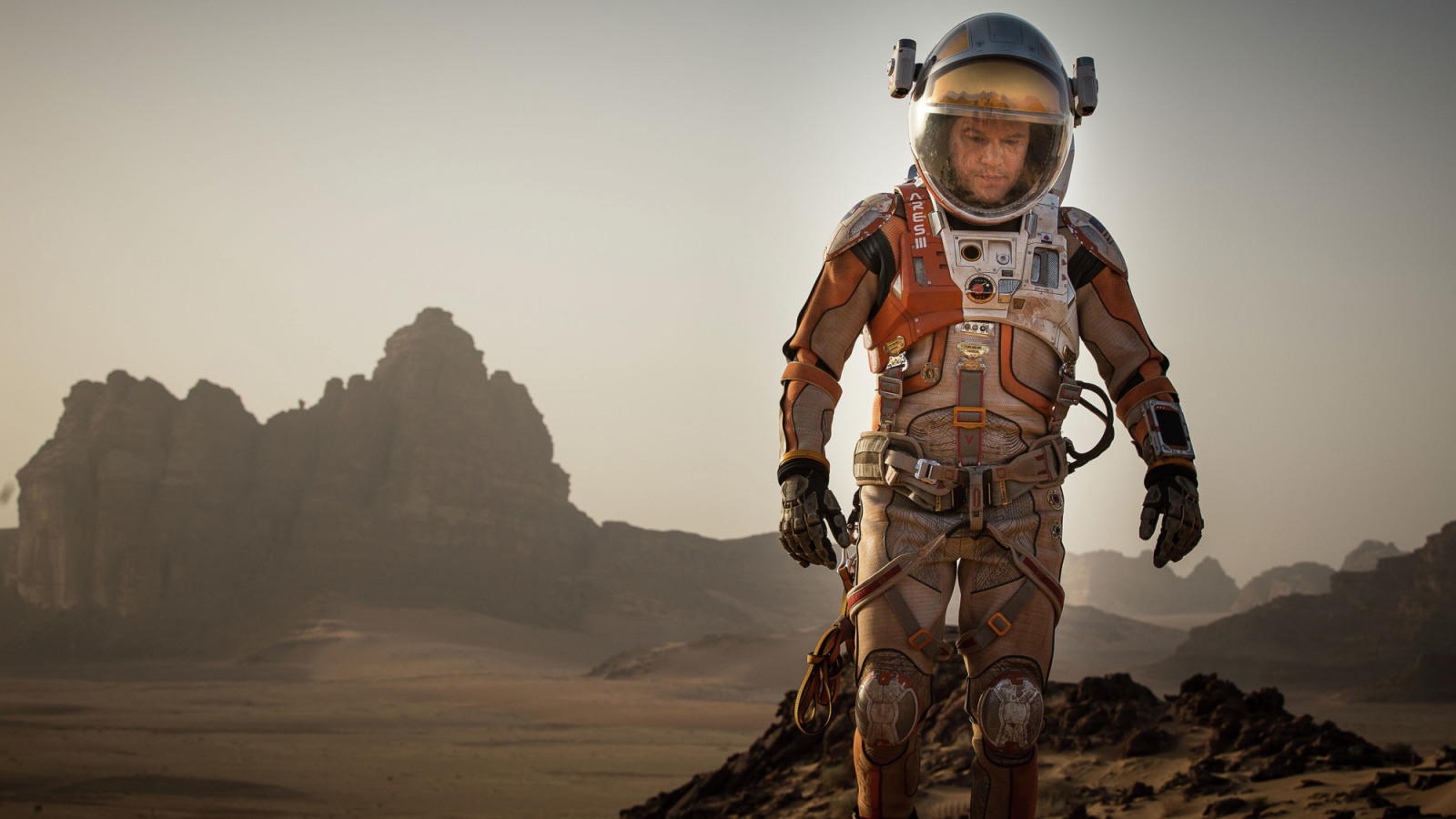Ridley Scott’s “The Martian” is a thoroughly entertaining
blockbuster that values intelligence, science and teamwork over superpowers and
strength. Anchored greatly by Matt Damon’s best performance in years and gilded
by the kind of precise technical elements that a veteran director like Scott
brings to a multi-million dollar production, “The Martian” is remarkably
crowd-pleasing. It’s difficult to imagine anyone actively disliking it, and I
expect when it descends from its Toronto World Premiere today to the rest of
the world that they will embrace it. Like “Apollo 13,” this is a film that can
be described as crowd-pleasing without coming off as diminutive or insulting.
It’s a film designed to transport you to an unimaginable place that somehow
stays relatable and human enough that we can see ourselves within it. That’s
what we want from a great blockbuster—something both larger than us but not so
distant that we can’t connect. “The Martian” is a great blockbuster.
Scott and writer Drew Goddard (“The Cabin in the Woods”),
who adapts from Andy Weir’s hit novel, waste absolutely no time. NASA botanist
Mark Watney is on Mars, working a mission with a loyal crew led by Melissa
Lewis (Jessica Chastain). As a storm comes upon them more quickly than expected—and,
apparently, storms on Mars look like metal flying through the air in pitch
black darkness—the crew (which also includes Kate Mara, Sebastian Stan, Michael
Pena and Aksel Hennie) head for safety. They need to launch now or risk
tragedy. Suddenly, a satellite dish tears off and strikes Mark directly in the
chest. He’s thrown across the landscape, and his signal dies. They assume he
does as well, taking off. The world mourns the loss of a great man, the kind
willing to give years to their life for exploration that will advance the human
race.
Of course, Mark’s not dead. Part of the dish pierced his
biometric reader, making it look like he had died. He wakes up as the only
human on Mars. He has enough rations for six people to last a month. Now, they
overestimate in that department, so he maybe has a year. It takes four for a
manned mission to get to Mars. He’ll have to grow his own crops. Thank God, he’s
the botanist. Watney wastes no time on misery—and, if there’s any complaint
about the film, it may be that it avoids some of the true horror of the
situation in favor of Watney’s wit—getting to work planting crops in the
shelter that will be his home for years…if he’s lucky.
Meanwhile, NASA plans a memorial under the leadership of
Teddy Sanders (Jeff Daniels) and Venkat Kapoor (Chiwetel Ejiofor), and the PR
guidance of Annie Montrose (Kristen Wiig). That’s when a NASA employee named
Mindy Park (Mackenzie Davis of “Halt and Catch Fire”) notices that the
satellite pictures of Mars have changed since the crew of the Hermes started
heading home. They quickly discern that Mark must be alive. What now? How can
they help him? Should they send supplies? People? Should they tell the rest of
Mark’s crew and distract them from their mission home?
“The Martian” is a non-stop series of questions and answers.
It is a blockbuster designed around problem-solving instead of action
sequences, and it’s remarkable how entertaining it is when one considers that
it has no real “traditional” set-pieces. Most blockbusters work off their
action sequences, spacing them out to create rising action, and knowing you’re
really not there for the dialogue. “The Martian” avoids this problem by essentially
never letting up on the tension after Mark’s accident. It’s a driven film,
paced perfectly, and gorgeously lensed by Darius Wolski, who uses 3D technology
not in flashy ways but to really place us on the surface of Mars with Mark.
Scott seems invigorated by “The Martian” in ways he hasn’t
in recent years. It makes sense. It plays with themes by which he’s long been
fascinated—not just space exploration but the human drive to survive, and the
human need to never leave a man behind. Also, whatever one may say about some
of Scott’s inconsistencies in the last two decades, he always attracts an
incredibly proficient technical crew, and that shows here. “The Martian” just
looks great. It’s visually engaging while also working on a human level.
That latter compliment really belongs to Damon (with a nice
assist by Goddard, a great writer who has always found a way to merge the human
and the unimaginable, all the way back to his work on “Buffy the Vampire Slayer”).
Damon is careful not to overplay the emotional fragility inherent in a role
like this, shining in multiple scenes in which he has no one to play off but
the cameraman. The whole cast really works, all the way down to small roles
played by Davis, Donald Glover, Daniels and Ejiofor, who seems incapable of
giving a lazy performance.
That’s the key to the success of “The Martian.” Too often we
see blockbusters that take the lazy route to success. Nothing about this film
feels cynical or over-produced. It’s passionate and powerful, and it preaches
something that we don’t often see in a genre typically derided as mindless:
sometimes being smart and trying something that’s never been done before will
save your life. As cheesy as it sounds, it will
leave young people considering things like space exploration, botany and
science instead of just companion video games or action figures. Maybe the lack
of cynicism in the film has softened me, but I think that matters.












